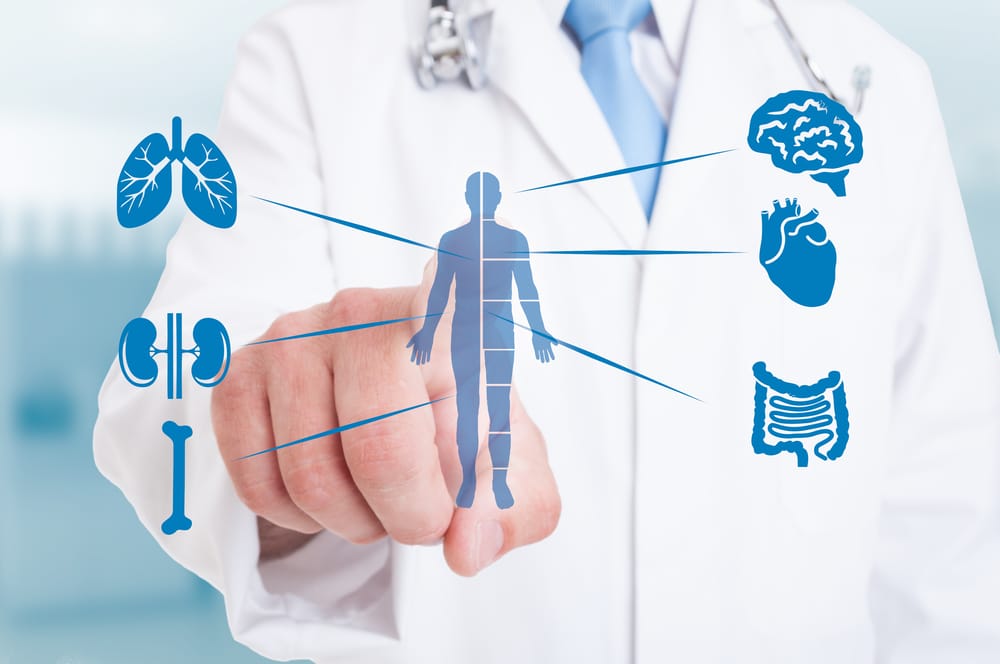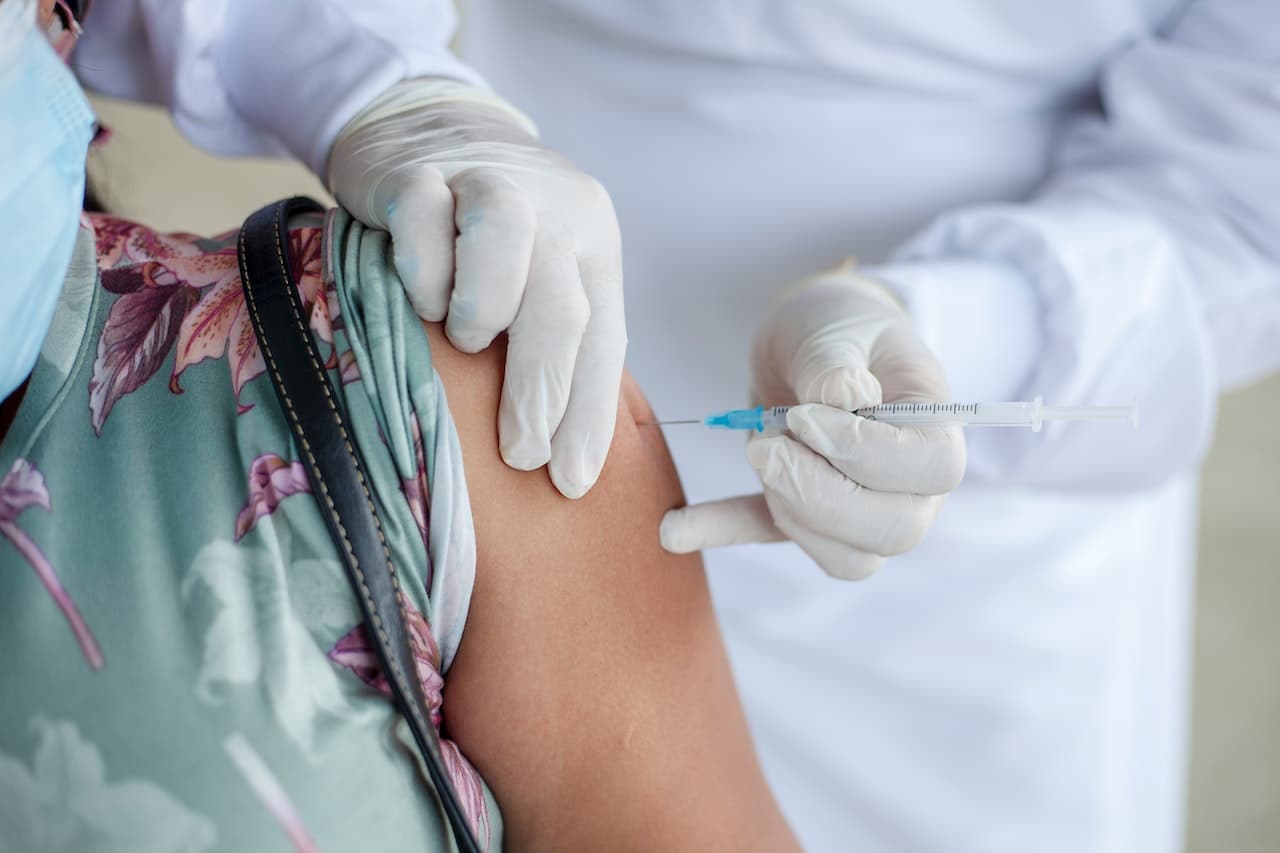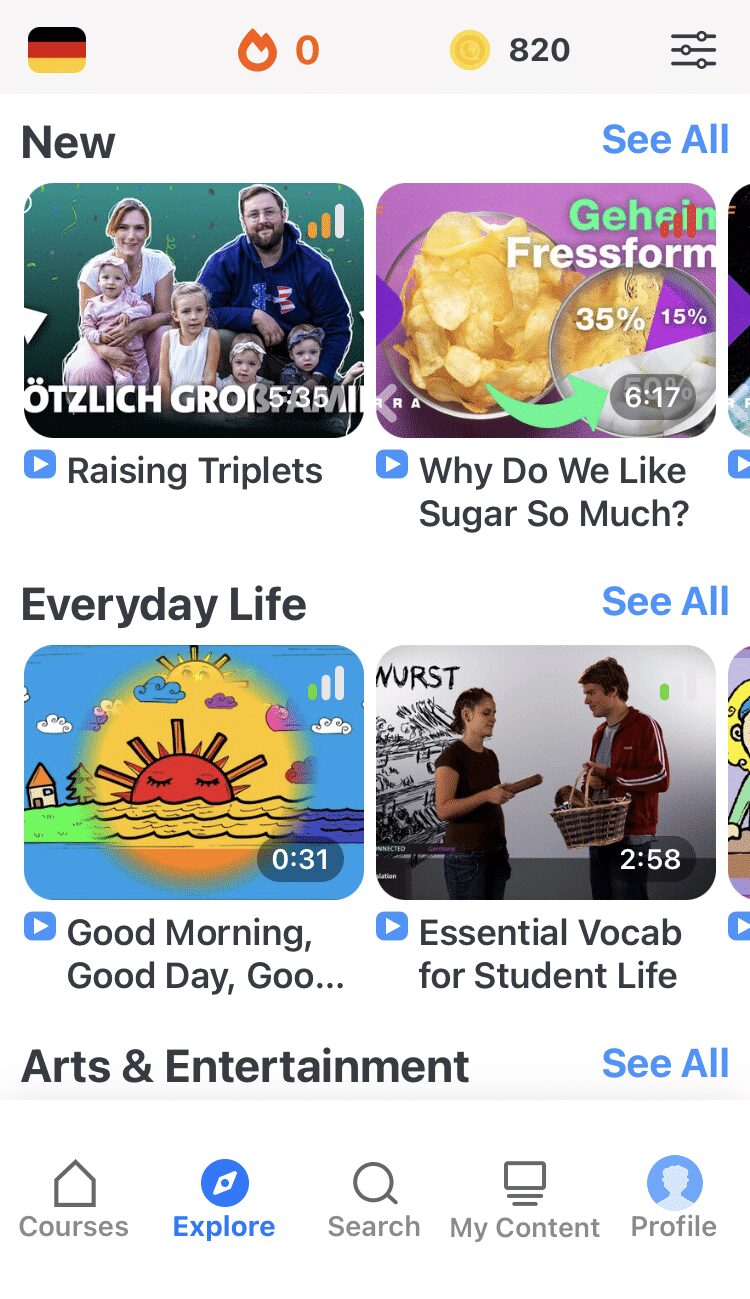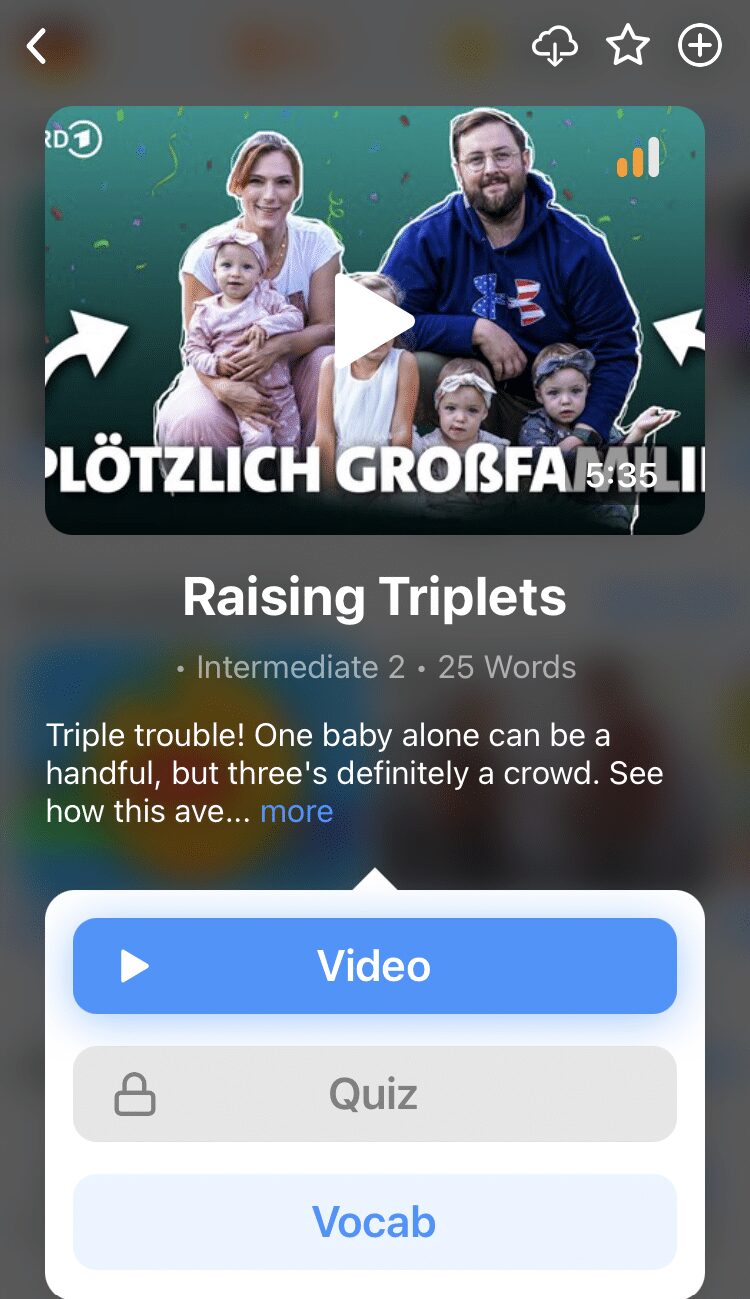German for Nurses

In Germany, nurses are called Krankenschwester (female) or Krankenpfleger (male), and they’re in more demand than ever.
Complementing your healing skills with a few German phrases here and there may do more for your nursing career than you thought possible. Check out 140+ essential German vocabulary for nurses.
Download: This blog post is available as a convenient and portable PDF that you can take anywhere. Click here to get a copy. (Download)
Common Vocabulary

- der Patient (male) / die Patientin (female) — patient
- der Arzt (male) / die Ärztin (female) — doctor
- der Kopf — head
- das Herz — heart
- die Lunge (singular) — lung
- die Blutgruppe — blood type
- die Medikation — medication
- das Nahrungsergänzungsmittel — (dietary) supplement
- die Allergie — allergy
- die Krankengeschichte — medical history
- die Operation (die OP) — surgery
- die Apotheke — pharmacy
- die Impfung — vaccination
- der Blutdruck — blood pressure
- die Nadel — needle
- der Puls — pulse
- die Krankenversicherung — health insurance
- die Krankenkasse — health insurer
- das Gewicht — weight
- die Temperatur — temperature
- Was ist denn mit Ihnen heute los? — So, what’s the problem today?
- Ich bin hier, um Ihnen zu helfen. — I’m here to help you.
- Sind Sie gegen etwas allergisch? — Are you allergic to anything?
- Der Arzt/Die Ärztin ist in ein Paar Minuten bei Ihnen. — The doctor (male/female) will see you shortly.
- Nehmen Sie schon Medikamente? — Are you taking any medications?
- Haben Sie ihre die Gesundheitskarte? — Do you have your health card?
- Vielen Dank, dass Sie heute gekommen sind. — Thank you for coming in today.
Parts of the Body

- der Körper — body
- das Gehirn — brain
- das Auge — eye
- das Ohr — ear
- die Nase — nose
- der Mund — mouth
- der Hals — neck
- die Brust — chest
- der Magen — stomach (organ)
- der Bauch — stomach/abdomen
- die Leber — liver
- die Hand — hand
- das Bein — leg
- die Haut — skin
- das Blut — blood
For more anatomy-related vocabulary in German, check out this guide:
Body Parts in German | FluentU German Blog
Learn all of the body parts in German with this comprehensive list that includes vocabulary for the head, torso, upper and lower appendages and more. Discover fun ways to…
Symptoms

- der Schmerz — pain
- die Übelkeit — nausea
- das Fieber — fever
- die Kopfschmerzen — headache
- der Husten — cough
- die Erkältung — cold
- die Verstopfung — constipation
- der Durchfall — diarrhea
- die Infektion — infection
- die Verletzung — injury
- der Hautausschlag — rash
- die Müdigkeit — fatigue
To remember these vocabulary (even before you use them in actual medical situations), getting some context helps. For example, you can look up the words and phrases above on FluentU.
FluentU takes authentic videos—like music videos, movie trailers, news and inspiring talks—and turns them into personalized language learning lessons.
You can try FluentU for free for 2 weeks. Check out the website or download the iOS app or Android app.
P.S. Click here to take advantage of our current sale! (Expires at the end of this month.)
Diseases and Conditions

- die Krankheit — disease
- der Diabetes — diabetes
- der Krebs — cancer
- die Grippe — flu
- die Erkältung — common cold
- der Herzinfarkt — heart attack
- die Lungenentzündung — pneumonia
- das Asthma — asthma
- die Allergie — allergy
- der Schlaganfall — stroke
- die Arthritis — arthritis
- die Depression — depression
- die Angststörung — anxiety disorder
- der Bluthochdruck — high blood pressure
- die Osteoporose — osteoporosis
- die Hepatitis — hepatitis
- die Masern — measles
- die Bronchitis — bronchitis
- das Sodbrennen — heartburn
- die Gastritis — gastritis
- der Nierenstein — kidney stone
- der Alzheimer — Alzheimer’s disease
- die Demenz — dementia
Medical Equipment

- die Spritze — syringe
- das Thermometer — thermometer
- der Verband — bandage
- die Schere — scissors
- das Stethoskop — stethoscope
- die Infusionspumpe — infusion pump
- der Defibrillator — defibrillator
- die Maske — mask
- der Rollstuhl — wheelchair
- das Blutdruckmessgerät — blood pressure monitor
- das Röntgengerät — X-ray machine
- der Ultraschall — ultrasound
- das EKG-Gerät — EKG machine
- der Computertomograph — CT scanner
- der Kernspintomograph — MRI machine
Areas of the Hospital

- das Krankenhaus — hospital
- die Notaufnahme — emergency room
- die Intensivstation — intensive care unit
- die Station — ward
- die Chirurgie — surgery
- das Labor — laboratory
- die Apotheke — pharmacy
- der Krankenwagen — ambulance
- das Krankenzimmer — patient’s room
- der Operationssaal — operating room
- der Empfang — reception
- der Aufenthaltsraum — lounge/waiting room
Doctors

- der Arzt / die Ärztin — doctor (male/female)
- der Chirurg / die Chirurgin — surgeon (male/female)
- der Kinderarzt / die Kinderärztin — pediatrician (male/female)
- der Kardiologe / die Kardiologin — cardiologist (male/female)
- der Orthopäde / die Orthopädin — orthopedic doctor (male/female)
- der Radiologe / die Radiologin — radiologist (male/female)
- der Neurologe / die Neurologin — neurologist (male/female)
- der Gynäkologe / die Gynäkologin — gynecologist (male/female)
- der Anästhesist / die Anästhesistin — anesthesiologist (male/female)
- der Dermatologe / die Dermatologin — dermatologist (male/female)
Medications and Drugs

- das Medikament — medication
- das Rezept — prescription
- die Tablette — tablet
- die Pille — pill
- die Kapsel — capsule
- der Sirup — syrup
- die Salbe — ointment
- das Antibiotikum — antibiotic
- das Schmerzmittel — painkiller
- die Spritze — injection
- der Impfstoff — vaccine
- die Dosis — dose
- die Nebenwirkung — side effect
Phrases for Talking to Patients

- Wie fühlen Sie sich heute? — How are you feeling today?
- Wo haben Sie Schmerzen? — Where do you have pain?
- Auf einer Skala von 1 bis 10, wie stark sind Ihre Schmerzen? — On a scale of 1 to 10, how strong is your pain?
- Ich werde jetzt Ihren Blutdruck messen. — I am going to take your blood pressure now.
- Ich werde Ihnen jetzt eine Spritze geben. — I’m going to give you an injection now.
- Sie müssen diese Medikamente dreimal täglich einnehmen. — You need to take these medications three times a day.
- Bitte bleiben Sie ruhig liegen. — Please stay calm and lie still.
- Ich helfe Ihnen beim Aufstehen. — I’ll help you to get up.
- Ich hole gleich den Arzt/die Ärztin. — I will get the doctor (male/female) right away.
- Rufen Sie mich, wenn Sie etwas brauchen. — Call me if you need anything.
- Es ist Zeit für Ihre Medikamente. — It’s time for your medication.
- Wir müssen eine Blutprobe entnehmen. — We need to take a blood sample.
- Wir werden Sie jetzt in den Operationssaal bringen. — We are going to take you to the operating room now.
- Sie werden bald entlassen. — You will be discharged soon.
Since there’s a lot of medical vocabulary to learn, if you ever find yourself lacking a German word or phrase, you can also try circumlocution (using words you know to describe something rather than striving for a one-to-one translation). It’s a bit like charades but can work wonders if you’re not sure what else to do.
Take a break from your medical textbooks and pick up a few German phrases. After all, knowing some German vocabulary for nurses can help set you apart from others when it comes to interviews, resumes and applications.
There’s definitely a need for German-speaking nurses, both abroad and at home. Aging populations may express themselves better in German, and the ability to speak intimately with them could prove invaluable!
And One More Thing...
Want to know the key to learning German effectively?
It's using the right content and tools, like FluentU has to offer! Browse hundreds of videos, take endless quizzes and master the German language faster than you've ever imagine!
Watching a fun video, but having trouble understanding it? FluentU brings native videos within reach with interactive subtitles.
You can tap on any word to look it up instantly. Every definition has examples that have been written to help you understand how the word is used. If you see an interesting word you don't know, you can add it to a vocabulary list.
And FluentU isn't just for watching videos. It's a complete platform for learning. It's designed to effectively teach you all the vocabulary from any video. Swipe left or right to see more examples of the word you're on.
The best part is that FluentU keeps track of the vocabulary that you're learning, and gives you extra practice with difficult words. It'll even remind you when it’s time to review what you’ve learned.
Start using the FluentU website on your computer or tablet or, better yet, download the FluentU app from the iTunes or Google Play store. Click here to take advantage of our current sale! (Expires at the end of this month.)












